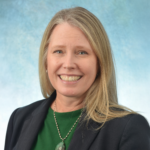Mental health is an essential part of overall health – and pediatric primary care providers are increasingly serving on the front lines. With one in five children facing a diagnosable mental health disorder and rates of anxiety and depression on the rise, the routine pediatric well visit has become a critical opportunity for early identification, intervention and support.
To explore how primary care practices are integrating behavioral health screening and care into their everyday work, we brought together experts from across the country – including rural Alaska – for a roundtable discussion. Together, they examined the benefits and challenges of this integrated care model.
Guests:
Rebecca A. Baum, MD, FAAP, Chief, Division of Developmental Behavioral Pediatrics, University of North Carolina at Chapel Hill
Marian F. Earls, MD, MTS, FAAP, Developmental and Behavioral Pediatrician, Pediatric Specialists, Cone Health
Joan Jeung, MD, MPH, MS, Clinical Professor, Pediatrics, University of California, San Francisco School of Medicine
Elisa Marie Rosier, MD, FAAP, Pediatrician, Owner, Pacific Pediatrics
Host/Producer: Carol Vassar
Announcer:
Welcome to Well Beyond Medicine, the world’s top-ranked children’s health podcast produced by Nemours Children’s Health. Subscribe on any platform at nemourswellbeyond.org or find us on YouTube.
Carol Vassar, podcast host/producer:
Each week we’ll be joined by innovators and experts from around the world exploring anything and everything related to the 85% of child health impacts that occur outside the doctor’s office. I’m your host, Carol Vassar. And now that you’re here, let’s go.
MUSIC:
Let’s go-oh-oh, Well Beyond Medicine.
Dr. Joan Jeung, Clinical Professor, Pediatrics, University of California, San Francisco (UCSF) School of Medicine:
Pediatric primary care is a lower stigma setting. This is a place that all kids go to, and so it’s just easier to start raising these concerns and talking about them there.
Carol Vassar, podcast host/producer:
The concerns referred to here by one of today’s guests, Dr. Joan Jeung, are those surrounding pediatric mental health and the movement to address such concerns in the pediatric primary care setting, which makes sense when you remember that pediatricians are often the first and sometimes only points of contact for families when it comes to their child’s overall well-being.
But primary care providers, already stretched thin with rising caseloads, administrative demands, and limited resources, are now being asked to do more, to identify support and sometimes even treat mental and behavioral health concerns on top of everything else they do. In this episode, we’ll look at how this marriage of mental health with pediatric primary care can and is happening by providing pediatricians with easy-to-use, evidence-based behavioral health screening tools, early intervention strategies, direct specialty support, and referral resources for use with their patients.
Joining me for a roundtable discussion of this topic from the American Academy of Pediatrics Council on Healthy Mental and Emotional Development are Joan Jeung, clinical professor of pediatrics at the University of California San Francisco School of Medicine; Dr. Marian Earls, developmental and behavioral pediatrician with Cone Health in Greensboro, North Carolina; Dr. Rebecca Baum, section chief of development, behavior and learning at the University of North Carolina at Chapel Hill; and Dr. Elisa Rosier, pediatrician and owner of Pacific Pediatrics in Ketchikan, Alaska.
We begin our discussion by examining the importance of integrating mental health principles into the primary care setting and the overall benefit that has for children. Here’s Dr. Joan Jeung.
Dr. Joan Jeung, Clinical Professor, Pediatrics, University of California San Francisco (UCSF) School of Medicine:
Pediatric primary care is a lower-stigma setting. This is a place that all kids go to, and so it’s just easier to start raising these concerns and talking about them there. So, one in five children and adolescents in the US have a diagnosable mental health disorder, and an additional 15% will have behavioral health symptoms that don’t quite rise to the level of a disorder, but are still impairing. And these diagnosis levels may be an underestimate. So, the CDC Youth Risk Behavioral Survey tells us that 40% of US high schoolers actually report symptoms of major depression, persistent sadness, hopelessness, etc.
And so these are huge numbers of children, and a mental health emergency has been declared by the American Academy of Pediatrics as well as the American Child and Adolescent Psychiatry Association. And so pediatricians stand at the front line of this. We see these kids every day, and therefore we need to be able to recognize and address when these issues are facing our patients.
Carol Vassar, podcast host/producer:
How does the need for mental health care in the primary care setting, has it grown over the years? I’ve seen it when my kids were young, they’re now adults. Has this grown and is it in practice for primary care pediatricians right now? Dr. Earls?
Dr. Marian Earls, Developmental & Behavioral Pediatrician, Pediatric Specialists, Cone Health, Greensboro, NC:
I would say that mental health is health. So when we talk to pediatricians, these kids have been coming into us for years, and we know that some of these statistics existed even before the pandemic. So we know that families have those concerns and we really want to put people to be able to respond, to do really good promotion of mental health and to be able to identify when something is functionally giving them trouble when the family is concerned, as well as take care of the kids who actually go on to have perhaps have a mental health diagnosis. So it’s the whole range, and it’s what we do. So that really resonates with people, I think, when we talk to them about it, because they have been addressing these issues sometimes fairly well for a long time. But now we are really being intentional about how we are addressing those things from promotion all the way through intervention.
Carol Vassar, podcast host/producer:
Dr. Baum.
Rebecca A. Baum, MD, FAAP, Chief, Division of Developmental Behavioral Pediatrics, University of North Carolina at Chapel Hill:
Yeah. And how long ago was it, Marian, that there was a new morbidity declared by, I believe it was Robert Haggerty, right? And that was decades ago. And this new morbidity was the emotional, behavioral, mental health problems of children. I think one of the things that we’ve seen is that we’re conquering many of the infectious diseases that encompassed pediatric care years ago. Many of the other issues that pediatricians had to spend a lot of time facing, we’re really tackling those.
But yet the social challenges, all of the different social drivers of health that families are facing and their children and youth, and infants are facing, we haven’t tackled those yet. And so it really can feel both overwhelming as a pediatrician, but also lots of opportunities to really change the trajectory for child health in the future.
Carol Vassar, podcast host/producer:
Dr. Jeung, you are nodding your head. Anything to add to that?
Dr. Joan Jeung, Clinical Professor, Pediatrics, University of California, San Francisco (UCSF) School of Medicine:
I do want to say that the rates have been rising as far as we can see based on the epidemiological data. And in my own pediatric primary care practice, either there’s a greater willingness to acknowledge these concerns and talk about them or these are actually rising and my suspicion is some measure of votes.
Carol Vassar, podcast host/producer:
So that makes sense. How does early identification and intervention for mental health issues impact a child’s development and their long-term well-being?
Dr. Joan Jeung, Clinical Professor, Pediatrics, University of California San Francisco (UCSF) School of Medicine:
It absolutely matters because the earlier you can catch these concerns, the more likely you can be to prevent emerging concerns from becoming a disabling condition in the future. For example, if you catch ADHD early or ADHD type concerns early, it can make a huge difference in how they do in school, how they feel about themselves, whether or not they see themselves as successful in these huge areas that are developmentally important. So, catching the concerns early and providing these reef interventions early to empower children and families can really alter the life trajectory.
Carol Vassar, podcast host/producer:
I’m curious how pediatricians are truly incorporating this kind of screening into practice. As one of you noted earlier, I believe it was Dr. Baum, you talked about the stresses of being a pediatrician. Does this add more stress to the work that they are doing?
Dr. Marian Earls, Developmental & Behavioral Pediatrician, Pediatric Specialists, Cone Health, Greensboro, NC:
I think it’s an interesting question and it would seem like that would be the case, but in our experience, and I’ve had a lot of experience in doing practice transformation with folks, when they have the tools and they understand what screening means and how to talk to families about it, it’s actually quite powerful for them. And in one of the projects that we worked on, we heard not to ask for responses from folks that said, “This has changed the way I practice. It’s changed my whole perspective of my pediatric practice, particularly for people who have been in practice for a long time who were really trying to… we’re almost burnt out, we’re very, very happy to have the tools to do this.
Now, we certainly need to help folks with that. That’s the important part is help people understand how do you have the conversation with a family about why you’re doing the screening with everybody. We have to help people understand, “Okay, even if you live in an area that’s not very resourced, you can find ways to really address these families.” So I think it makes practice much more satisfying for people to know there are things that I can do that are really tangible, and there are ways I can partner with mental health professionals and other community resources to actually get this done.
Carol Vassar, podcast host/producer:
Dr. Baum?
Rebecca A. Baum, MD, FAAP, Chief, Division of Developmental Behavioral Pediatrics, University of North Carolina at Chapel Hilll:
Yeah, I agree with Marian. I think it is an interesting question because on one hand, you could postulate that this is leading to all these challenging issues, which are leading to burnout. On the other hand, I think the more complex the problem is, the less it becomes our job individually to fix. And so I think that the guidance that I often will give to residents who are working with me or people who are trying to do a little bit more of this work is just remember, you don’t have to have all the answers. In fact, you shouldn’t. You’re part of a team, and that team includes the patient, the family, your practice, and the community that you practice in, even if that community happens to be rural Alaska.
And so I think that mindset shift allows people to partner with patients and families in a way that is really quite kind of refreshing and takes us back to the reason why many of us went into this field, which is just to help, right? Not to solve and fix everything, but to help. And it allows those relationships with patients and families to grow and those relationships are incredibly meaningful and also support good health care.
Carol Vassar, podcast host/producer:
Dr. Rosier, I want to turn to you. I know that both Dr. Earls and Dr. Baum referred to the fact that you were in Alaska, rural Alaska. Talk about the barriers that you’re finding and the pediatricians there and what resources they are making use of in terms of finding a way to integrate mental health into their practice.
Dr. Elisa Marie Rosier, Pediatrician/Owner, Pacific Pediatrics, LLC, Ketchikan, Alaska:
Alaska is called the Last Frontier for a reason. There aren’t many resources – end of sentence, but especially around mental health care, there’s a paucity of resources. I’ve been working in Alaska as a primary care pediatrician for 15 years. And prior to COVID, the wait times, the lack of resources, those were an issue. But after COVID with people moving back down to the lower 48, seeking jobs elsewhere, it’s become compounded in terms of an issue. I personally like to have a creative approach to providing care. I don’t have subspecialists available to me.
In fact, currently where I live in Alaska, on Prince of Wales Island, it’s the third-largest island in America, but I’m the only pediatrician there and I don’t have a counselor available to refer patients to. So zip codes matter in terms of access to mental health care in America and I find it important to advocate for better resources in rural and frontier areas in America.
Carol Vassar, podcast host/producer:
Are you finding that you are actually counseling some of these kids, or are you doing things like using telemedicine or sending them elsewhere to get counseling, maybe off-island?
Dr. Elisa Marie Rosier, Pediatrician/Owner, Pacific Pediatrics, LLC, Ketchikan, Alaska:
I do do a lot of counseling in my clinic. Telehealth, it’s hard because probably 95% of my patients have Medicaid. And Medicaid isn’t currently covering telehealth counseling, and that’s something that I’m working on with a couple companies to bring telehealth to Frontier Alaska and rural areas in America.
Carol Vassar, podcast host/producer:
This is not unusual, as you said, in Frontier Alaska and rural America where you’re doing the counseling yourself. So more resources are required it sounds like.
Dr. Elisa Marie Rosier, Pediatrician/Owner, Pacific Pediatrics, LLC, Ketchikan, Alaska:
Yes.
Carol Vassar, podcast host/producer:
And more supportive the pediatrician or pediatricians that are in these areas.
Dr. Elisa Marie Rosier, Pediatrician/Owner, Pacific Pediatrics, LLC, Ketchikan, Alaska:
Yes.
Carol Vassar, podcast host/producer:
What role does the routine well-child visit play in identifying early signs of anxiety, depression, or behavioral health issues? Dr. Jeung.
Dr. Joan Jeung, Clinical Professor, Pediatrics, University of California, San Francisco (UCSF) School of Medicine:
So the well-child visit, A, is a great opportunity for primary care providers to establish this continuous relationship with patients and with their families and caregivers. That relationship is the foundation for all the other clinical care that we do. Also provides this opportunity for this routine screening. So developmental screening, screening for maternal postpartum depression, as well as for childhood anxiety, adolescent depression.
It’s an opportunity to screen for these in a structured way. And also to ask our patients and families directly in the context of this trusted relationship. So it’s hugely important backbone for allowing us to do this work of healthy mental health and emotional development.
Carol Vassar, podcast host/producer:
How can pediatricians normalize the work that you’re doing, integrating mental health into that primary care practice? I know there’s still stigma despite the fact that we’ve been fighting against it for years. There is still stigma with regard to mental illness. How are pediatricians working to normalize that?
Dr. Marian Earls, Developmental & Behavioral Pediatrician, Pediatric Specialists, Cone Health, Greensboro, NC:
I think that a well-visit is a perfect example. What Joan is talking about, where we’re doing this screening and talking to families. The screening also includes us, asking them what their strengths are and what is going well for them. So what the feedback we got from families was that those visits became more meaningful for them because we were actually asking them about the things that they might be concerned about. But if we don’t have a way that we routinely ask and make sure that we’ve covered those things, it doesn’t work for families.
So we’re trying to encourage people, this is what families would like. When we do a screen, you get a template of what are the things that the family is interested in so that you can tailor your conversation with them based on what you’ve heard from them ahead of time, rather than going in and doing a well visit and leaving and not really addressing the things that the families are experiencing.
So I think it’s a perfect way for us to be able to do this, and when we make it a routine part of our conversation, it’s more satisfying for the pediatrician, but it’s also much more satisfying for the families.
Carol Vassar, podcast host/producer:
When it comes to pediatricians, do they need additional training? Obviously, we talked to Dr. Rosier or she could use some additional resources. I’m sure there are pediatricians across the nation. What resources do you think could be brought to bear in this area? Dr. Baum.
Rebecca A. Baum, MD, FAAP, Chief, Division of Developmental Behavioral Pediatrics, University of North Carolina at Chapel Hill:
I just have to say to your question, do pediatricians need additional training? The answer is yes. And we’ve needed that training for decades. Part of my journey was starting as a general pediatrician in a rural area that pales in rurality to Elise’s practice, but realizing how important developmental behavior and mental health was to parents, and realizing that I had no idea what I was talking about. And despite going to a really good residency program, it just really wasn’t part of the curriculum, certainly, and the way that it needs to be.
A lot of organizations and a lot of really smart people are trying to figure out how we can change really residency training. And so there’s a lot that has been done and still needs to be done, not only in terms of curricula and experiences, but honestly in terms of the way that we fund residency training and that we run many of our hospitals. So it’s a really big issue, but thankfully there are a lot of people who are working on it right now.
Carol Vassar, podcast host/producer:
Dr. Jeung.
Dr. Joan Jeung, Clinical Professor, Pediatrics, University of California San Francisco (UCSF) School of Medicine:
I just wanted to echo a lot of what Becky was saying about this journey that I had to take in trying to gain some of the skills in screening for discovering and intervening in the cases of behavioral and developmental concerns.
Carol Vassar, podcast host/producer:
And primary care.
Dr. Joan Jeung, Clinical Professor, Pediatrics, University of California San Francisco (UCSF) School of Medicine:
I want to name another resource that’s available pretty much nationally for pediatricians now, and full disclosure, I work for one. These are pediatric mental health care access programs. I work for the one in California called CalMAT. So pediatric primary care providers, all psychiatrist to ask for their real-time advice on how to address and treat, identify behavioral health concerns in their patients. And it’s a great way to start developing comfort and some skills. And something that we often did not get during our residency. And many of these programs also offer training and education programs for pediatricians, other pediatric primary care providers to be able to start building up some of these skills.
Carol Vassar, podcast host/producer:
So it’s kind of a form of telemedicine, but it’s the pediatrician talking to the psychiatrist or psychologist on call at that moment. Dr. Earls, you looked like you had something additional.
Dr. Marian Earls, Developmental & Behavioral Pediatrician, Pediatric Specialists, Cone Health, Greensboro, NC:
Well, I want to say that I’ve been on the board of the child psychiatry access programs for a number of years. So the very exciting thing is that HRSA has funded states so that we’re now in 49 states and in many tribal communities as well. And the great thing about it is it’s insurance agnostic. So these teams of psychiatrists, perhaps a licensed mental health clinician, and often care coordinators, are available to folks pretty much in real-time to be able to address the family’s concerns. It’s such a marvelous way to expand the capacity of child psychiatry because there’s not a lot of child psychiatrists and there’s not one in every community clearly.
So it’s a really excellent program for people to be able to understand what they might do. And it’s not always about what intervention do I have to do right now, but help me understand how I talk to the family about this concern and what are the resources that might be there. Some of those programs are now also helping find where there is a therapist that sees a 10-year-old and be able to tell people where they might refer and how they might find services.
So, it’s a really excellent program. I will say for those of us in practice, it’s also important for us to understand what is mental health and how do we talk about it because that’s not the be-all and end-all to get advice. You have to understand when do I ask the questions and how do I ask the family about this? And I also want to say that our new council on healthy mental and emotional development is all about identifying, but also about the primary prevention and promotion that we can do to prevent some of these things. How do we address social drivers that are affecting families that are ultimately going to affect their mental health?
So there’s a lot about prevention as well. That’s what pediatricians have always been taught to do is prevention. So I think while we do need to do a lot of training so people feel more comfortable about asking those questions and having the conversations, I think people are ready for it. And so we really want to be able to get people to have these conversations, so it’s not always a crisis, right? Because if you’re having those conversations regularly, you have the opportunity to do interventions earlier. So that’s also a big hope of this work that we’re doing.
Carol Vassar, podcast host/producer:
Let’s talk a little bit about prevention and treatment in underserved populations. It sounds like Alaska is underserved. It sounds like some of the tribal nations are also underserved. What role do pediatricians play to help families through the process of finding that care and treatment and learning about prevention? Dr. Joan.
Dr. Joan Jeung, Clinical Professor, Pediatrics, University of California, San Francisco (UCSF) School of Medicine:
Pediatricians are very used to talking about things like healthy nutrition, good sleep, exercise, and positive parenting. And these bits of guidance can be super helpful, super important for helping children to get off on the right foot and developing the social emotional skills and capacities that really formed the bedrock of mental health. And so pediatricians really have a very important role to play here as part of that well-child visit. As Marian mentioned earlier, working towards that prevention and that promotion. And also through that relationship, there’s a lot more trust to be able to start expressing the concerns earlier on whether or not this family is ready to go to a specialist, especially a mental health specialist.
Pediatric primary care is a lower stigma setting. This is a place that all kids go to, and so it’s just easier to start raising these concerns and talking about them there. And so we also have that role in that early identification, that early intervention to help keep kids on a healthier track as opposed to deviating off into something that becomes what I call the slow motion train wreck.
Carol Vassar, podcast host/producer:
Dr. Earls.
Dr. Marian Earls, Developmental & Behavioral Pediatrician, Pediatric Specialists, Cone Health, Greensboro, NC:
To get a little more beyond the individual practice, I think the academy has done really excellent work in trying to help with those health disparities. There are clearly communities where people have less access. And so we can all participate in trying to ameliorate that in our practice, but we also can be very involved in advocacy around expansion of Medicaid, making sure that all children are on Medicaid, making sure that they all have a primary care medical home.
Whenever you’re doing this thing, the policy and what’s happening in your state is really important to be able to facilitate what you’re doing. One way that people can start to change those disparities is by having an integrated mental health professional in their practice. In my practice that I ran for 18 years, we had integrated mental health professionals who were available in real time to take warm handoffs, talk to families, and partner with us.
So we had this cross-fertilization, actually. Primary care learned a lot about mental health and the mental health person learned a lot about kids with chronic conditions and how do you help them. But that kind of partnership, those kinds of models where mental health can be integrated in primary care are really exciting as ways to try to address this. It removes the stigma you mentioned. It increases the convenience. You can do that warm handoff. It also helps you understand when do I really need to get that referral immediately and when can we do follow-up for a while before we have to do that?
So I put in a big plug for that because I think it’s something that we are moving toward. And we’ve talked about the team piece of this because we’re not doing it all by ourselves.
Carol Vassar, podcast host/producer:
Dr. Rosier.
Dr. Elisa Marie Rosier, Pediatrician/Owner, Pacific Pediatrics, LLC, Ketchikan, Alaska:
I have the pleasure of working in Frontier Alaska and with many of the Alaska native groups, Tlingit, Haida, and in addition, I have the pleasure of doing locums work in sunny Oklahoma with the Choctaw Nation. And while both areas have a paucity of mental health resources, one new tool that has really augmented my practice is the existence of 988. And one thing that the AP has is an ambassadorship with the American Foundation of Suicide Prevention, and the pleasure of being the ambassador for suicide prevention in Alaska.
And through that work, I’ve been working with SAMHSA and the national level. And one idea that I came up with was the idea of in the clinic, when you’re concerned about a patient or a postpartum mother of having them pull out their cellphone and inputting 988 into their contacts and reminding them that 988 is a resource that’s available 24/7 and it’s a call or a text away. And people are sitting there waiting to hear from us. And that is a lifeline in situations where there is a 12-month wait for counseling.
Carol Vassar, podcast host/producer:
988, by the way, is the suicide and crisis lifeline that is now nationwide, one number. If you’re in crisis, that is the number for you. Dr. Baum.
Dr. Baum, MD, FAAP, Chief, Division of Developmental Behavioral Pediatrics, University of North Carolina at Chapel Hill:
Yeah. I just wanted to also put an unplug for family navigators or families with lived experience often a parent or caregiver who is able to work with families in a way that’s much different actually than I am. I’ve got medical knowledge. I know what to prescribe, and I know about evidence-based therapies. But a parent who has been there can say to another parent, I’ve been in a situation like this too, and we’re on the other side of it. I can talk with you about what resources might be available for you.
We’re seeing those kinds of models. We saw them initially in the substance use world, and increasingly we’re starting to use them in pediatrics and hopefully a model that can continue to be disseminated to help reduce stigma and allow families to understand, just like Elisa said, that it’s always okay to ask for help.
Carol Vassar, podcast host/producer:
Dr. Rebecca Baum is the section chief of development, behavior and learning at the University of North Carolina at Chapel Hill. We also heard from Dr. Joan Jeung, clinical professor of pediatrics at the University of California, San Francisco School of Medicine; Dr. Marianne Earls, Developmental and Behavioral Pediatrician with Cone Health in Greensboro, North Carolina; and Dr. Elisa Rosier, pediatrician and owner of Pacific Pediatrics in Ketchikan, Alaska.
MUSIC:
Well Beyond Medicine.
Carol Vassar, podcast host/producer:
Thanks so much to doctors Baum, Earls, Jeung, and Rosier for a lively roundtable discussion on mental health integration into pediatric primary care. And as always, thank you for listening. We’re always open to your ideas for upcoming podcast episodes. All you need to do to get us your idea is visit nemourswellbeyond.org and leave us a voicemail. You can also email us at [email protected]. When you visit the website, you can subscribe to the podcast to leave a review and listen to episodes that you may have missed. That’s nemourswellbeyond.org. You’ll also find all of our podcast episodes on your favorite podcast app and on the Nemours YouTube channel.
This week’s production team includes Cheryl Munn, Susan Masucci, Lauren Teta, and Steve Savino. On our next episode, we’re going to look at how pediatric healthcare systems ready themselves for disasters such as hurricanes, floods, and wildfires. I’m Carol Vassar. Until then, remember, we can change children’s health for good, well beyond medicine.
MUSIC:
Let’s go-oh-oh, Well Beyond Medicine.












